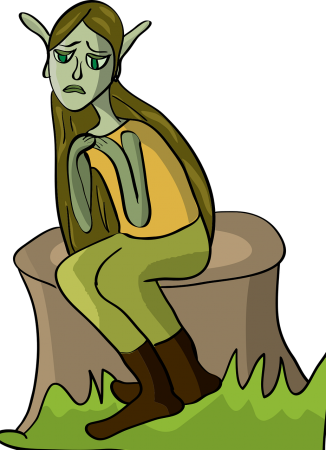Mood disorders are one of the most common conditions in the general population with with 12.6% of Canadians identifying with a mood disorder, 11.3% being for depression.1 Major depression disorder (MDD), is characterized by having five or more of the following symptoms every day or nearly every day for a minimum of two consecutive weeks:
- Depressed mood
- Loss of interest or pleasure in most or all activities
- Thoughts of worthlessness or guilt
- Recurrent thoughts about death or suicide
- Low energy
- Poor concentration
- Change in appetite or weight
- Insomnia or hypersomnia

If you feel you are in crisis right now please seek support. Calgary’s 24-7 Distress Centre crisis line can be reached at 403-266-4357.
Many factors including nutritional deficiencies outlined below can contribute to the development of major depressive disorder. Genetic, environmental and social influences are also significant factors.2 Depression can also be a side effect of many other conditions and medications so talking with your health provider is very important to help you manage depression.
Below will be a brief summary of the current research on diet and specific nutrients that have been associated with depression.
General Diet
A systematic review of global dietary patterns and quality found the traditional Norwegian diet to correlation with a reduced incidence of depressive symptoms.3 The traditional Norwegian diet consists of whole grains, fish three times a week, locally sourced low fat dairy and is high in berries and vegetables. Studies on the North American showed increased calories for sugary and processed foods increase depression rate.
Depression is a symptom of many different kinds of nutritional deficiencies and lack of foods in certain diets, for example the lack of leafy greens, citrus fruits and legumes in highly processed western diets, is most likely the greatest contribute correlations between poor diet and depression.4
Folate and B12
A review found associations with low levels of folate and vitamin B12 with depressive symptoms.5 Low folate levels have been seen to strongly correlate with depression in many populations worldwide regardless of age.6–12
To confirm the correlations of the above findings multiple control trials administering folate and vitamin b12 have ben done. Significant improvements in all types of depressed patients, including those on medication and not on medication, are seen with appropriate supplementation.5,13–15
Folate is found in soybeans, okra, spinach, broccoli, brussel sprouts, asparagus, lettuce beets and avocado.
B12 is found in fermented foods, dairy, nutritional yeast, eggs and meat.

Selenium
Decreased dietary selenium intake has been associated with increased risk of major depressive disorder. Selenium’s role as an antioxidant has been suggested as a mechanism of action in preventing depression.16 Selenium is also a key nutrient for thyroid hormone production. Depression is a common symptom of thyroid disease and should be assessed as possible cause of depression.
Studies on alcoholics and post-natal populations, both at risk for nutritional deficiencies, saw benefit from selenium supplementation.17,18
Selenium is found in brazil nuts, mixed nuts, egg, sunflower seeds, tofu, pinto beans and fish.
Magnesium
The role of magnesium in depression is not fully understood but is most often attributed to actions in the hypothalamus-pituitary-adrenal (HPA) axis that is frequently seen to be dysregulated in depressed populations.36, 37
Low intake of magnesium increases rates of depression.19,20 Administration of magnesium to those deficiency, PMS and chronic fatigue has all shown to improve mood.21–23
Prevention of depression with adequate intake of magnesium is recommended at levels of 600 to 800 mg daily.24 For more info on magnesium check out this blog post.
Magnesium is found in spinach, acorn squash, chard, pumkpin seeds, almonds and black beans.
Zinc
A micronutrient involved in learning, behaviour and mental function zinc has been associated with depression since 1983.50-53 As a cofactor to over 300 proteins and enzymes zinc deficiency symptoms are widespread and can include decreased sexual desire, irritability, immune deficiency, decreased mood, increased irritability and cognitive impairment.54 All of these symptoms are consistently seen in depressive disorders.
Zinc improved depression for people on medications and may be specifically helpful for obese populations.25–28
Zinc is found in grass fed beef and lamb, chickpeas, pumpkin seeds, tahini, lentils, cashews, oysters, shrimp and cocoa.
Take Home

There are multiple nutrients that can help treat depression. To ensure you are getting your full spectrum of nutrients needed to support mental health eat plenty of multi coloured vegetables and fruits and varied sources of protein like nuts, seeds, legumes and organically and ethically produced meat and fish.
Depression is one of the most common conditions I help people with. It can severely impact your health and quality of life. If you feel any kind of depressive symptoms please talk about it with your health care providers and support system so you can get the help necessary.
Links:
Canadian Mental Health Association
Local Mental Health Facilities
References
- Pearson, Caryn Janz, Teresa Ali J. Mental and Substance use disorders in Canada. Stat Canada Cat. 2013;Health at(September):82-624-x.
- Krishnan R. Unipolar depression in adults: Epidemiology, pathogenesis, and neurobiology. Uptodate. http://www.uptodate.com/contents/unipolar-depression-in-adults-epidemiology-pathogenesis-and-neurobiology?source=see_link. Published 2014. Accessed June 10, 2014.
- Quirk SE, Williams LJ, O’Neil A, et al. The association between diet quality, dietary patterns and depression in adults: a systematic review. BMC Psychiatry. 2013;13:175. doi:10.1186/1471-244X-13-175.
- Gaby AM. Nutritional Medicine.; 2011.
- Coppen A, Bolander-Gouaille C. Treatment of depression: time to consider folic acid and vitamin B12. J Psychopharmacol. 2005;19(1):59-65. doi:10.1177/0269881105048899.
- Tiemeier H, van Tuijl HR, Hofman A, Meijer J, Kiliaan AJ, Breteler MMB. Vitamin B12, folate, and homocysteine in depression: the Rotterdam Study. Am J Psychiatry. 2002;159(12):2099-2101. doi:10.1176/appi.ajp.159.12.2099.
- Kim J-M, Stewart R, Kim S-W, Yang S-J, Shin I-S, Yoon J-S. Predictive value of folate, vitamin B12 and homocysteine levels in late-life depression. Br J Psychiatry. 2008;192(4):268-274. doi:10.1192/bjp.bp.107.039511.
- Ng T-P, Feng L, Niti M, Kua E-H, Yap K-B. Folate, vitamin B12, homocysteine, and depressive symptoms in a population sample of older Chinese adults. J Am Geriatr Soc. 2009;57(5):871-876.
- Lindeman RD, Romero LJ, Koehler KM, et al. Serum vitamin B12, C and folate concentrations in the New Mexico elder health survey: correlations with cognitive and affective functions. J Am Coll Nutr. 2000;19(1):68-76.
- Morris MS, Fava M, Jacques PF, Selhub J, Rosenberg IH. Depression and folate status in the US Population. Psychother Psychosom. 72(2):80-87. doi:68692.
- Bjelland I, Tell GS, Vollset SE, Refsum H, Ueland PM. Folate, vitamin B12, homocysteine, and the MTHFR 677C->T polymorphism in anxiety and depression: the Hordaland Homocysteine Study. Arch Gen Psychiatry. 2003;60(6):618-626. doi:10.1001/archpsyc.60.6.618.
- Sachdev PS, Parslow RA, Lux O, et al. Relationship of homocysteine, folic acid and vitamin B12 with depression in a middle-aged community sample. Psychol Med. 2005;35(4):529-538.
- Alpert JE, Mischoulon D, Rubenstein GEF, Bottonari K, Nierenberg AA, Fava M. Folinic acid (Leucovorin) as an adjunctive treatment for SSRI-refractory depression. Ann Clin Psychiatry. 2002;14(1):33-38.
- Papakostas GI, Shelton RC, Zajecka JM, et al. L-methylfolate as adjunctive therapy for SSRI-resistant major depression: results of two randomized, double-blind, parallel-sequential trials. Am J Psychiatry. 2012;169(12):1267-1274. doi:10.1176/appi.ajp.2012.11071114.
- Syed EU, Wasay M, Awan S. Vitamin B12 supplementation in treating major depressive disorder: a randomized controlled trial. Open Neurol J. 2013;7:44-48. doi:10.2174/1874205X01307010044.
- Pasco JA, Jacka FN, Williams LJ, et al. Dietary selenium and major depression: a nested case-control study. Complement Ther Med. 2012;20(3):119-123. doi:10.1016/j.ctim.2011.12.008.
- Pizzorno M. Textbook of Natural Medicine 4th Ed. London, UK: Churchill Livingstone; 2012.
- Mokhber N, Namjoo M, Tara F, et al. Effect of supplementation with selenium on postpartum depression: a randomized double-blind placebo-controlled trial. J Matern Fetal Neonatal Med. 2011;24(1):104-108. doi:10.3109/14767058.2010.482598.
- Jacka FN, Overland S, Stewart R, Tell GS, Bjelland I, Mykletun A. Association between magnesium intake and depression and anxiety in community-dwelling adults: the Hordaland Health Study. Aust N Z J Psychiatry. 2009;43(1):45-52. doi:10.1080/00048670802534408.
- Huang J-H, Lu Y-F, Cheng F-C, Lee JN-Y, Tsai L-C. Correlation of magnesium intake with metabolic parameters, depression and physical activity in elderly type 2 diabetes patients: a cross-sectional study. Nutr J. 2012;11:41. doi:10.1186/1475-2891-11-41.
- Barragan-Rodríguez L, Rodríguez-Morán M, Guerrero-Romero F. Depressive Symptoms and Hypomagnesemia in Older Diabetic Subjects. Arch Med Res. 2007;38(7):752-756. doi:10.1016/j.arcmed.2007.03.008.
- Facchinetti F, Borella P, Sances G, Fioroni L, Nappi RE, Genazzani AR. Oral magnesium successfully relieves premenstrual mood changes. Obstet Gynecol. 1991;78(2):177-181.
- Cox IM, Campbell MJ, Dowson D. Red blood cell magnesium and chronic fatigue syndrome. Lancet (London, England). 1991;337(8744):757-760.
- Serefko A, Szopa A, Wlaź P, et al. Magnesium in depression. Pharmacol Rep. 2013;65(3):547-554.
- Kashefi F, Khajehei M, Cher MT, Alavinia M, Asili J. Comparison of the Effect of Ginger and Zinc Sulfate on Primary Dysmenorrhea: A Placebo-Controlled Randomized Trial. Pain Manag Nurs. February 2014:1-8. doi:10.1016/j.pmn.2013.09.001.
- Ranjbar, E Kasaei, M Mohammad-Shirazi M. Effects of Zinc Supplementation in Patients with Major Depression: A Randomized Clinical Trial. Iran J Psychiatry. 2013;8(2):73-79.
- Nowak G, Siwek M, Dudek D, Zieba A, Pilc A. Effect of zinc supplementation on antidepressant therapy in unipolar depression: a preliminary placebo-controlled study. Pol J Pharmacol. 55(6):1143-1147.
- Solati Z, Jazayeri S, Tehrani-Doost M, Mahmoodianfard S, Gohari MR. Zinc monotherapy increases serum brain-derived neurotrophic factor (BDNF) levels and decreases depressive symptoms in overweight or obese subjects: a double-blind, randomized, placebo-controlled trial. Nutr Neurosci. 2015;18(4):162-168. doi:10.1179/1476830513Y.0000000105.
